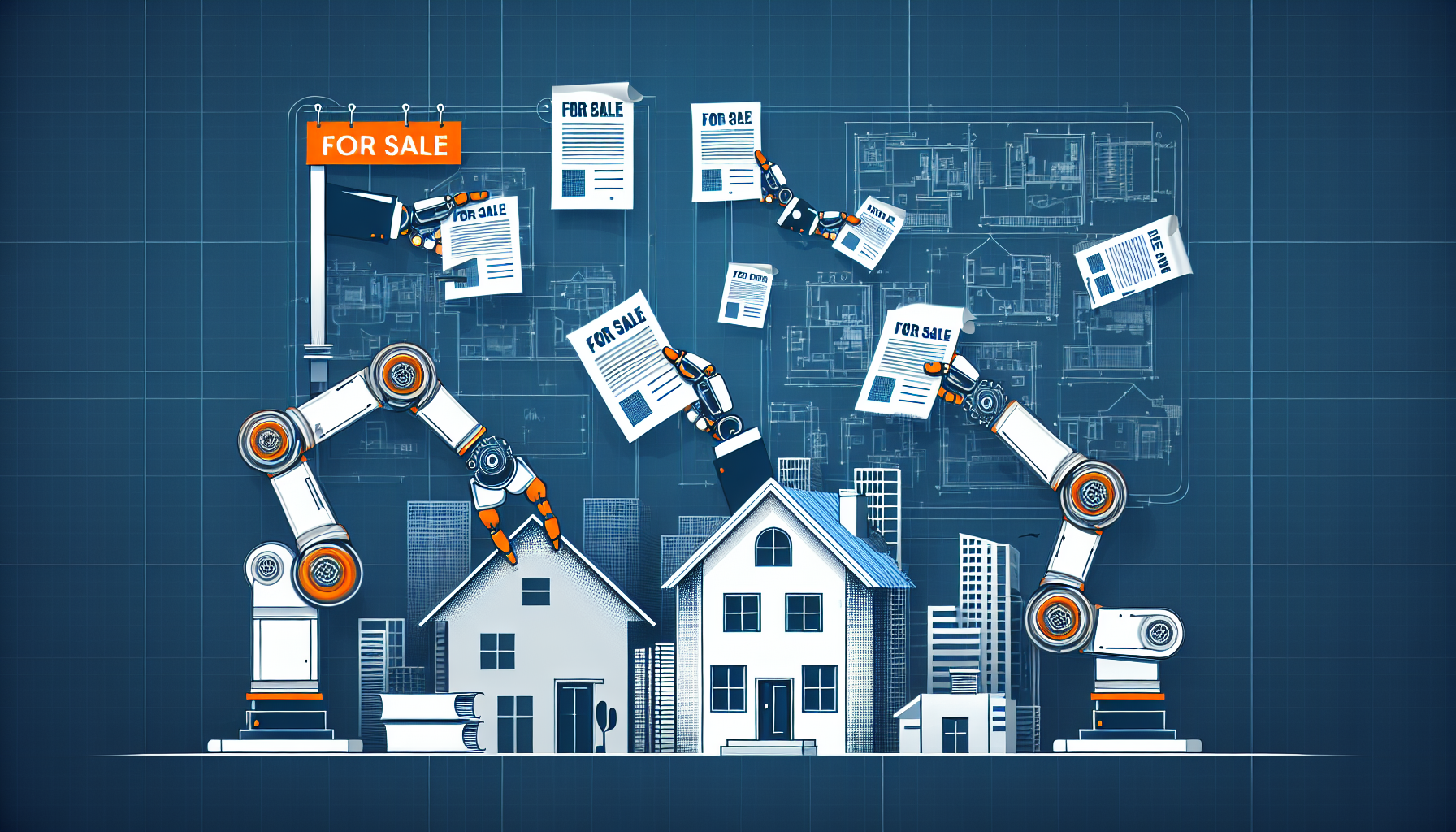The Impact of Automation on Real Estate Transactions: A Deep Dive
Understanding Automation in Real Estate
Automation in real estate refers to the use of technology to streamline and enhance various processes involved in property transactions. With advancements in artificial intelligence (AI), machine learning, and blockchain technology, many tasks traditionally performed by human agents are increasingly being automated. This transition is altering how real estate transactions are conducted, leading to faster processes, reduced costs, and improved client experiences.
Enhancing Efficiency in Property Listings
One of the most visible impacts of automation is the ability to create and manage property listings with unparalleled efficiency. Automated platforms allow real estate agents to input property details once and disseminate them across multiple listing services (MLS) and social media channels instantaneously. This Integrated Listing Management (ILM) saves time and maximizes exposure, ensuring that properties reach potential buyers swiftly.
Furthermore, advanced algorithms analyze market data to optimize listing strategies. By assessing historical trends and current market conditions, these systems suggest the best times to list properties and appropriate pricing strategies, ultimately leading to more successful transactions.
AI-Powered Virtual Tours and Showings
Real estate transactions have significantly benefited from AI-powered virtual tours. Prospective buyers can view properties through interactive 3D walkthroughs from the comfort of their homes, reducing the need for physical visits. Tools like Matterport provide detailed and immersive experiences that help clients visualize spaces better.
These virtual resources speed up the decision-making process for buyers, minimizing the time properties sit on the market. By offering 24/7 access to listings, realtors can reach a global audience, which is particularly advantageous in competitive markets.
Predictive Analytics for Market Trends
Predictive analytics, driven by AI, allows real estate professionals to forecast market trends and consumer behavior with remarkable accuracy. Big data tools analyze vast datasets to identify patterns, enabling agents to predict how certain areas will perform in terms of property values, demand, and investment opportunities.
This foresight is crucial for buyers looking to invest in promising neighborhoods or agents aiming to advise their clients effectively. The use of predictive analytics reduces uncertainty, guiding investors toward informed decisions while also enhancing efficiency in the transaction process.
Smart Contracts and Blockchain Technology
The emergence of blockchain technology is revolutionizing how transactions are conducted in real estate. Smart contracts enable automated, self-executing agreements that facilitate transactions without human intervention. Once conditions are met, the contract is completed, ensuring a quick and secure transfer of property ownership without the need for lengthy legal processes.
Transactions recorded on a blockchain are transparent and immutable, reducing fraudulent activities and ensuring all parties involved have access to verifiable information. This enhanced security fosters trust in digital transactions, a critical component when significant sums of money are involved.
Streamlined Financing and Transactions
Automation simplifies the financing aspect of real estate transactions. Online mortgage applications allow clients to apply for loans digitally, with AI algorithms processing applications quickly and accurately. Institutions use automated underwriting systems to evaluate a borrower’s creditworthiness in real time, expediting loan approvals.
Additionally, digital platforms gather and analyze data to offer customized financing options based on individual buyer profiles, enhancing the likelihood of secure transactions while reducing bottlenecks in the financing process.
Customer Relationship Management (CRM) Systems
Real estate professionals are increasingly utilizing automated CRM systems to manage client relationships effectively. These systems offer tools that track interactions, manage leads, and automate follow-ups, ensuring that no potential client falls through the cracks. Automated reminders, personalized emails, and targeted marketing campaigns facilitate engagement, keeping clients informed and interested throughout the transaction process.
This heightened level of service cultivates stronger relationships between agents and clients, leading to repeat business and referrals. Additionally, advanced CRM systems provide insights through analytics, helping agents tailor their strategies to meet the needs of their clients more effectively.
Reducing Human Error through Automation
One of the prominent advantages of automation in real estate transactions is the reduction of human error. Manual processes often lead to mistakes, from pricing errors to inaccuracies in contract details. Automation mitigates these risks by employing preset algorithms and templates that ensure consistency and accuracy.
Digital document management systems organize and save files automatically, minimizing the chances of losing critical information. Automated reminders for key deadlines enhance compliance throughout the transaction process, ensuring that nothing is overlooked by the agents or clients involved.
Scalability and Market Reach
Automation opens doors for real estate professionals by enabling scalability. Agents and brokerage firms can manage multiple transactions simultaneously without increasing the manpower required. As tasks like marketing, client communication, and data management become automated, agents can focus on high-value activities like negotiations and relationship building.
Automation also expands market reach. Property listings can be shared across various digital channels, attracting a wider audience. By tapping into online real estate platforms and utilizing social media marketing effectively, businesses can extend their footprint beyond local markets, attracting international investors and buyers.
The Challenge of Adapting to Technological Advancements
While the benefits of automation are manifold, the real estate industry faces challenges in fully embracing technological advancements. Resistance from traditionalists who prefer conventional methods poses significant obstacles. Furthermore, the rapid pace of technological change means agents and brokers must invest in ongoing training to stay competitive.
Data security and privacy concerns also loom large. As more sensitive information is shared online, guaranteeing the security of client data becomes paramount. Practitioners must be vigilant about the technologies they employ, ensuring that they are compliant with regulations regarding data protection.
Conclusion
Automation is reshaping the real estate industry by enhancing efficiency, minimizing errors, and providing clients with better service. As technology evolves, the sector must embrace these innovations while addressing the accompanying challenges. The future of real estate transactions will undoubtedly be shaped by the continued integration of automation, paving the way for more streamlined and effective practices in the industry.
By staying ahead of technological changes, real estate professionals can leverage automation to their advantage, offering more value to clients and improving overall transaction outcomes.


